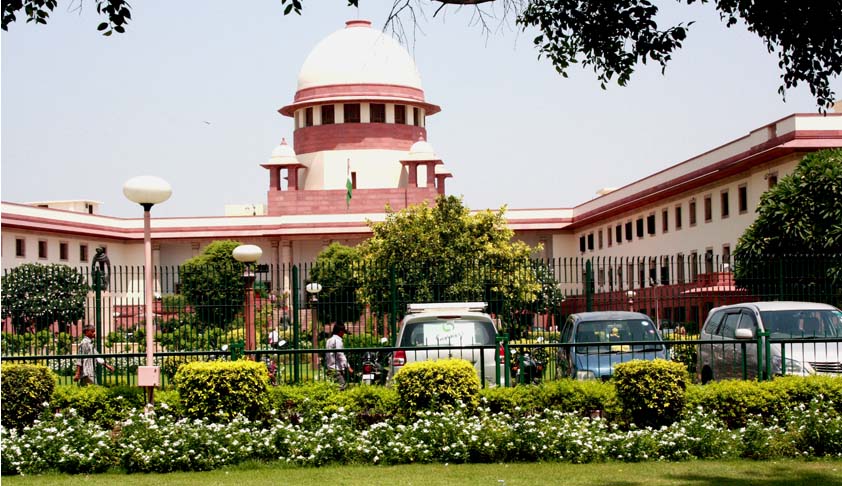To Hear Or Not To Hear
Senior Advocate Jana Kalyan Das
2 March 2018 11:47 AM IST

A spectre of recusals, mostly voluntary i.e. sua sponte (on their own motion) has been haunting the Indian Judicial landscape in the recent past, and more particularly, the Indian Supreme Court. On 21st January, 2017 a report appeared in ‘Live Law’ that from January, 16 to 20 as many as six recusals have come to light in the Supreme Court. On December, 27 2017 a further news item appeared in ‘Bar and Bench’ that from December, 4 to 8, Seven Supreme Court Judges recused from hearing 10 cases and in the year 2017 28 Judges had recused themselves from at least 376 cases. The obvious question which arises therefore, is ; What happens to the Common Law and Blackstonian doctrine of the “Duty to Sit” ?. The additional question that arises is; What happens to the oath of office administered to the judge under the constitution obliging him to discharge his duties without fear or favour, affection or ill will ?.
The situation has become more intriguing on account of the fact that no reasons are recorded for such recusals. In the absence of recording of reasons a perception has increasingly gained ground amongst the public that the judges are abdicating their constitutional duties and responsibilities and the same amounts to a negation of the demands of judgeship which enjoins that the judge has an inherent and inalienable responsibility to hear and decide cases and the said duty cannot ordinarily be abandoned.
Voluntary recusals by judges/justices of the apex court in most other jurisdictions have been very few and far between. However, in India now it seems to have become all most routine. In UK and USA, for instance, judges have refused to withdraw themselves from high profile and controversial cases even in the face of “motions for recusal” by taking recourse to the ‘duty to sit doctrine’ as well as the ‘doctrine of necessity’. Classic examples of such cases in USA are the cases of ‘Laird Vs. Tatum’ containing the Memorandum of Justice Rehnquist on non-recusal and the views of justice Antonin Scalia in the case of ‘Cheney Vs. United States District Court for the District of Columbia’.
Notwithstanding criticism that the ‘duty to sit’ doctrine is an out-dated doctrine which needs to be buried in modern times and further that some countries have even brought about legislations to substantially dilute the rigours of the said doctrine, judges of the American Supreme Court have continuously drawn sustenance and succour from the ‘duty to sit’ doctrine on the assumption that the doctrine is actuated by public policy reasons and judicial recusals is not a matter of discretion. Starting from the days of Chief Justice John Marshall, well known for his decision in the classic case of Marbury Vs. Madison, Chief Justices and other Justices of the American Supreme Court have consciously refused to recuse themselves from politically sensitive, controversial and high profile cases. In addition to Chief Justice Marshall, Chief Justice Oliver Wendell Holmes, Justice Hugo Black, Justice Abe Fortes, Justice Rehnquist and Justice Antonin Scalia have also set great reliance on the ‘duty to sit’ doctrine and have refused to recuse themselves in the face of motions for recusal demanding their disqualification from the case.
It is no doubt true that the ‘duty to sit’ doctrine is not absolute. In the USA the ‘duty to sit’ doctrine has been misused by judges of the Federal Court to hear and decide cases, notwithstanding, justifiable recusal motions thus prompting the American Bar Association and US Congress to laydown guidelines even to the extent of abolishing the duty to sit doctrine. However, these guidelines and legislations are not applicable to the justices of the US Supreme Court.
In India however, the position appears to be ambivalent. In the case of Subrata Roy Sahara Vs. Union of India (2014) 8 SCC 407 the Indian Supreme Court while declining a request for recusal has held that “For the oath of Office of the Supreme Court requires the Bench to discharge the obligation without fear or favour. The Supreme Court therefore, also commends to all courts, to similarly repulse all baseless and unfounded insinuations unless of course they should not be hearing a particular matter, for reasons of their direct or indirect involvement. The Bench mark that justice must not only be done but should also appear to be done has to be preserved at all cost. In the said judgement it has been held further “in our view not hearing the matter would constitute an act in breach of our oath of office which mandates us to perform the duties of our office, to best of our ability, without fear or favour, affection or ill will”.
In similar vein in the case of Court on its Own Motion Vs. State, Cri Misc No. 9955 of 2007 in WP (Cri) No.796 of 2007 order dated 4-10-2007 (Del) the Indian Supreme Court has approved the views of the Delhi High Court which while refusing a request for recusal had held as follows:- “The path of recusal is very often a convenient and a soft option, This is especially so since a Judge really has no vested interest in doing a particular matter. However, the oath of office taken under Article 219 of the Constitution of India enjoins the Judge to duly and faithfully and to the best of his knowledge and judgement, perform the duties of office without fear or favour, affection or ill will while upholding the Constitution and the laws”. In a case, where unfounded and motivated allegations of bias are sought to be made with a view of forum hunting/Bench preference or brow-beating the Court, then, succumbing to such a pressure would tantamount to not fulfilling the oath of office”.
While such has been the constant refrain of the Apex Court while refusing recusal requests/motions it appears that the very same principles are not scrupulously adhered to in the case of voluntary recusals. It is no doubt true that while in the final analysis the decision to hear or not to hear a case should be left to the wisdom and sagacity of the concerned judge in cases of voluntary recusals, since the oath of office of the judge mandates him/her to hear and decide the case, in the least, reasons for recusal ought to be recorded in larger public interest for promoting faith and public confidence in the administration of justice. This is more so for the reason that in every decision of voluntary recusal public time and public money is involved Michael Kirby, the former Chief Justice of the High Court of Australia has repeatedly reminded all courts about their duty towards the litigant which duty is non-negotiable. For, in the ultimate analysis, the litigant as the seeker of justice has the right to know every development about his case and for the same reasons ought to be recorded for his satisfaction.
The Full Court of the Supreme Court of India in its charter to ‘The Restatement of Values of Judicial Life’ has emphasised that ‘justice must not merely be done but it must also be seen to be done. The behaviour and conduct of members of the higher judiciary must reaffirm the people’s faith in the impartiality of judiciary’. However, the charter is woefully silent as to the duty of the judge to record reasons while voluntarily recusing himself from any cause or matter. It is time that the Full Court revisits the issue of judicial recusals and evolves guidelines in the larger interest of reinforcing the abiding faith and confidence of the public in the justice delivery system-an exercise which has already been done by the High Court of New Zealand.
 Jana Kalyan Das is a Senior Advocate at Supreme Court of India.
Jana Kalyan Das is a Senior Advocate at Supreme Court of India.[The opinions expressed in this article are the personal opinions of the author. The facts and opinions appearing in the article do not reflect the views of LiveLaw and LiveLaw does not assume any responsibility or liability for the same]


